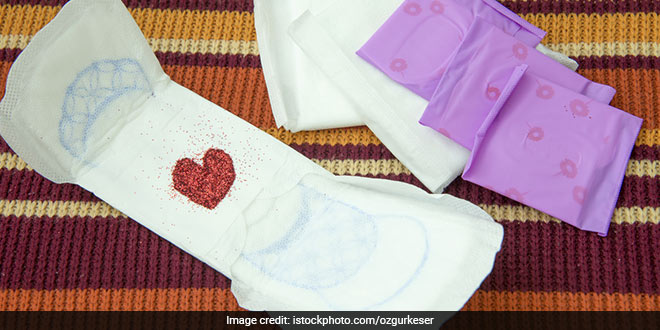Mumbai: With an aim to spread awareness on menstrual hygiene management in the state, especially in the remote areas, the north-eastern state of Arunachal Pradesh has vowed to implement strategies undertaken in Swachh Bharat Mission towards the cause. The Public Health Engineering and Water Sanitation Department (PHE&WS) will adopt the Information Education and Communication (IEC), a method adopted under the Clean India Mission, to bring about a mass behavioral change through awareness. The state hopes that the IEC executions will accelerate the process of change and speed up the adoption of safe menstrual practices in the state.
Under the IEC, people from the local communities and grassroot organisations will be appointed and trained on menstrual hygiene, said PHE&WS Minister Bamang Felix in a two-day workshop on menstrual hygiene conducted to observe the Swachh Bharat Diwas on April 17 in state capital Itanagar
Intensive IEC will ensure that there is an open dialogue on menstruation via discussions, debates and workshops that will be organised among the communities and in schools. Openly discussing about menstrual hygiene will help us in removing the stigma attached to the topic, the official said.
Mr Felix announced that it will take up recommendations by the experts on menstrual hygiene. He also directed the health officials to give utmost importance to the topic.
The state government will take the responsibility of educating women and girls about the basic components of menstrual hygiene. Menstrual waste management will also be included in the awareness campaign, Mr Felix said.
The official further highlighted the dearth of supply of free or subsidised sanitary pads in schools, especially the ones located in rural areas. And thus, he directed the officials to initially focus on the usage of sanitary napkins and then shift the focus on developing incinerators in the state.
Members from Mumbai-based NGOs, ASHA and ‘Red is the New Green’ and local NGOs were also present at the event. One of the social activist, Toko Mina pointed out the poor state of sanitation in schools. She said there are over 50,000 adolescent girls in the state and for menstrual hygiene to work, it is necessary for the government to ensure sufficient number of toilets and water supply in schools.
Mr Felix urged the locals to co-operate with the government officials and organisations and adopt the hygienic practices for a healthy future. The two-day workshop on menstrual hygiene witnessed discussions on possible solutions to issues like the process of menstruation and its management, hygiene measures, safe disposal, problems faced during menstruation, planning sessions on menstrual hygiene awareness with adolescents, etc.
Menstrual hygiene, a topic which was once considered a stigma in the Indian society is gradually making its way into the mainstream with many states coming forward and making sanitary napkins and its disposal methods accessible. For instance, under the ASMITA Yojna scheme in Maharashtra, school girls residing in rural areas of the state will be provided sanitary pads for free from this year onwards. Similarly, the Kerala government launched ‘She Pad’,’ a scheme to distribute free sanitary napkins to girl students from classes VI to XII in government and aided private schools affiliated to the state school board. In 2017, Karnataka government started a scheme under which 13 packets of sanitary napkins containing 10 pads in each packet per year will be given to 32.50 lakh adolescent girls.


























